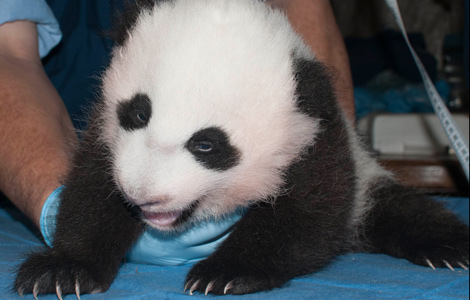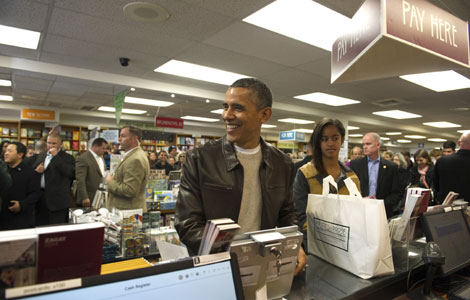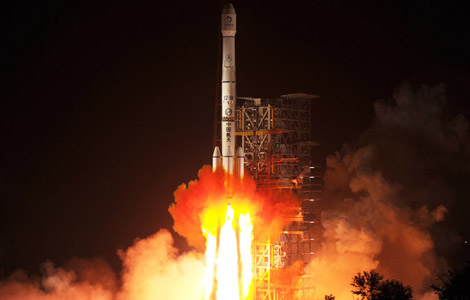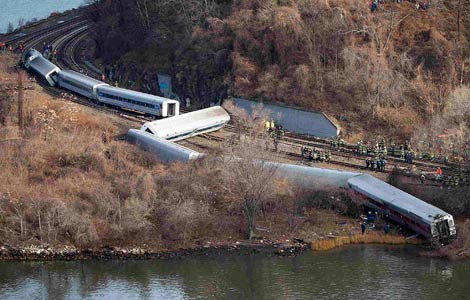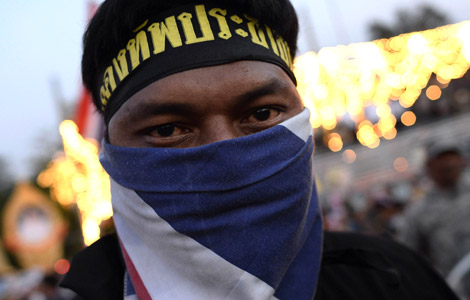Biden's visit to advance new type of power relations
Updated: 2013-12-02 09:56
By Chen Weihua in Washington (Chinadaily USA)
|
||||||||
While the row over China newly announced East China Sea Air Defense Identification Zone has dominated the headlines in the past week, US Vice-President Joseph Biden's trip to China on Dec 4-5 will have a broad agenda on bilateral, regional and global issues, according to White House officials.
Saying that Biden will seek clarification on the ADIZ, a senior US administration official said Biden is not travelling to Beijing to deliver a demarche, let alone on a single issue.
"He's going to have a very high-level and a very wide ranging dialogue with the senior Chinese leadership that covers a wide range of shared interests along with areas of concern, areas of cooperation and areas of deconfliction," the official said at a background briefing about Biden's weeklong trip to three East Asian nations, which also include Japan and Republic of Korea.
In China, Biden will meet President Xi Jinping, Vice-President Li Yuanchao and Premier Li Keqiang.
"He will pick up where President Obama and President Xi left off after Sunnylands and G-20, with the kind of high-level personal engagement between the top leadership of our two countries that is essential part of advancing the US-China relationship in the 21st century," said the official, referring to the informal summit between Xi and Obama in Sunnylands, California, in early June when they vowed to build a new type of major country relationship to defy the historical rivalry between a rising power and the existing power.
Biden has a closer personal relationship with Xi than any other US leaders. He met Xi during his trip to China two years ago and he also accompanied him during Xi's trip to the US in February, 2012, as China's vice president.
Shen Dingli, associate dean of the Institute of International Studies at Fudan University in Shanghai, described Biden's visit as a further step to regularize high-level exchange visit, boost new type of major country relations, dispel distrust and assure China that the US rebalancing doesn't target against China.
Shen believes that the recent East China Sea ADIZ will be a new topic for the discussion. "It is crucial that the two countries need to discuss and dispel possible new distrust," Shen said.
Though both the Chinese and US militaries have been in the spotlight of China's new ADIZ, the White House official stressed that two countries have made good progress between the two militaries since Biden's last visit to China.
"We've had a number of very strong mil-mil programs throughout the year, high-level exchanges, quite a good dialogue," he said.
"And then this military-to-military engagement is a very important part of our overall bilateral relationship and a place where we are seeking to maintain continuous and open dialogue."
Martin Dempsey, chairman of US Joint Chiefs of Staff, visited China in April while Chinese Defense Minister Chang Wanquan and Commander in Chief of the PLA Navy Wu Shengli visited the US respectively in August and September.
For the first time, Chinese navy will participate in the Rim of the Pacific exercise in Hawaii next year. Known as RIMPAC, it is the world's largest naval exercise that involves more than 20 nations. The two navies just concluded a joint exercise on humanitarian assistance and disaster relief in Hawaii three weeks ago.
Biden, who is also likely to join the 2016 presidential race, will be the most senior US official visiting China after the high-profiled Third Plenum of the 18th Central Committee of the Communist Party of China held in early November.
US Treasury Secretary Jack Lew visited China two weeks ago after the meeting which rolled out an ambitious economic reform agenda.
"We believe that this is an important and an ambitious reform program," the senior US administration official said.
US officials and most pundits in the US have recently spoken positively of the concrete reform agenda mapped out following the Third Plenum.
Anne-Marie Slaughter, president and CEO of the New America Foundation and the former director of policy planning at the State Department, said that the enormous economic reform announced, if carried out, will be looked at as fundamental as some of Deng Xiaoping's original reforms, referring to Deng's reform and opening-up policy announced in 1978 which ushered in decades of rapid economic growth.
China and the US also agreed in July to start formal negotiation of a Bilateral Investment Treaty (BIT) which could potential open China's service sector to US investors while assuring a fair treatment of the growing Chinese foreign direct investment in the US.
The two largest economies in the world are each other's major trading partner, with bilateral trade approaching $500 billion last year. China is also the largest foreign holder of US government treasury bonds.
Under the so-called Sunnylands spirit, China and US have tried to better maximize their cooperation and manage their differences.
Speaking about US policy in Asia at Georgetown University on Nov 20, US National Security Advisor Susan Rice said the US seeks to operationalize a new model of major power relations. "That means managing inevitable competition while forging deeper cooperation on issues where our interests converge – in Asia and beyond," she said.
China and the US have not only cooperated on the nuclear issue regarding the Korean Peninsula and Iran, the two largest greenhouse emitters in the world have also increasingly cooperated in climate change and clean energy.
US climate change envoy Todd Stern recently praised bilateral cooperation. US Environmental Protection Agency Administrator Gina McCarthy will travel to China soon to seek more cooperation.
The 4th China-US High-Level Consultation on People-to-People Exchange held in Washington 10 days ago, chaired by Secretary of State John Kerry and Vice Premier Liu Yandong, pledged to expand cooperation in culture, education, sports, science and technology and women's issues.
However, China remains suspicious of the US rebalancing strategy in Asia, especially the military component. Many Chinese also hold the view that the US is biased towards its allies when it comes to their territorial disputes with China.
Stapleton Roy, a distinguished scholar at the Kissinger Institute on China and the United States at the Wilson Center, said Biden's visit to China is very important.
He said the recent deal regarding Iran's nuclear program will require cooperation and mutual understanding between the US and China. "Tensions in the East China Sea are dangerously high. And both countries are in the early stages of exploring how to create a new model of relations between major countries that can contain and reverse an escalation of strategic rivalry between the United States and China," said Roy, who was US ambassador to China in the early 1990s.
--end—
Most Viewed
Editor's Picks

|

|

|

|

|

|
Today's Top News
Cheap luxury, startup required
Drama Rhinoceros In Love staged in New York
Washington's panda named Bao Bao
At least 4 dead in NYC commuter train derailment
China's new billionaires may have a lot to learn
China launches moon rover
Internships in DC payoff for Asian youth
Japan ignores Cairo Declaration
US Weekly

|

|
